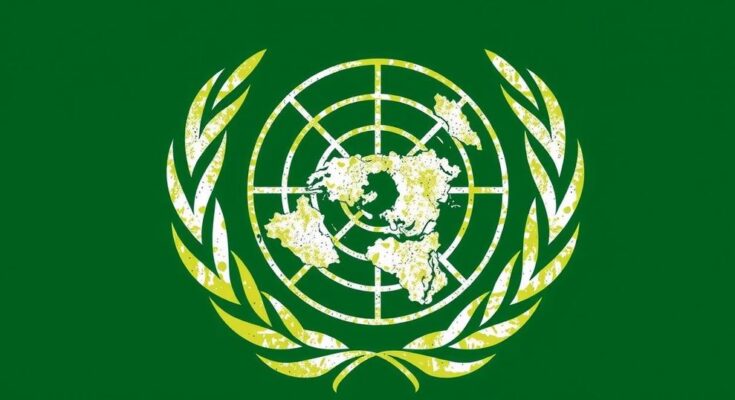The UN arms embargo on South Sudan has been rendered ineffective as the government continues to acquire weapons, violating international sanctions. Evidence suggests complicity among high-ranking officials with companies like Dynamic Defense Solutions in securing military supplies. This ongoing breach of sanctions coincides with a marked increase in civilian casualties and deteriorating humanitarian conditions in South Sudan.
The ongoing arms embargo imposed by the United Nations Security Council (UNSC) on South Sudan since 2018 has ostensibly failed to stem the flow of weapons into the country. Despite the embargo, which aimed to curb rampant human rights violations and extrajudicial killings, South Sudanese officials have reportedly continued to secure military supplies from various sources, notably including the United Arab Emirates (UAE). Evidence presented in the 2023 UN inquiry report indicates that senior South Sudanese government officials have facilitated the illicit acquisition of arms. A notable occurrence was the announcement by Dynamic Defense Solutions FZE, a UAE-based company, which claimed to have secured a deal to supply vehicles to the South Sudanese military. Attempting to downplay the implications, SSPDF spokesperson Maj. Gen. Lul Ruai Koang asserted that no deal had been finalized, contradicting the company’s communications that indicated an established partnership. The lack of accountability for such actions only exacerbates the credibility crisis facing South Sudan’s government amid escalating civilian casualties and widespread violence. Tellingly, the UN arms embargo appears to be ineffective, demonstrated by documented arms transfers to South Sudan from global suppliers, including deliveries of over 150 armored vehicles in 2022. This consistent breach of international sanctions persists even as the government neglects pressing humanitarian issues, preferring to engage in military dealings that defy established protocols. In light of these developments, the future of peace and stability in South Sudan remains precarious, as the government prioritizes military endeavors over the safety and well-being of its citizens.
Since its independence in 2011, South Sudan has faced multifaceted crises marked by violent conflict, widespread human rights violations, and economic instability. The UNSC imposed an arms embargo in July 2018 in response to ongoing violence and failures to adhere to peace agreements. The embargo aimed to limit the flow of weapons, ostensibly to mitigate war crimes and protect civilian lives. However, reports suggest that the South Sudanese government may have circumvented these restrictions, continuing to engage in military acquisitions, thereby undermining international efforts to stabilize the region.
The evidence surrounding South Sudan’s circumvention of the UN arms embargo raises serious concerns about the effectiveness of international sanctions and their enforcement. The government’s actions, characterized by secretive military dealings and a lack of accountability for human rights violations, have compounded the suffering of its citizens. As conflict persists and the humanitarian crisis deepens, it is essential for the international community to reassess its strategies to ensure that arms embargoes are not merely symbolic but have tangible impacts on peace initiatives in South Sudan.
Original Source: www.radiotamazuj.org




